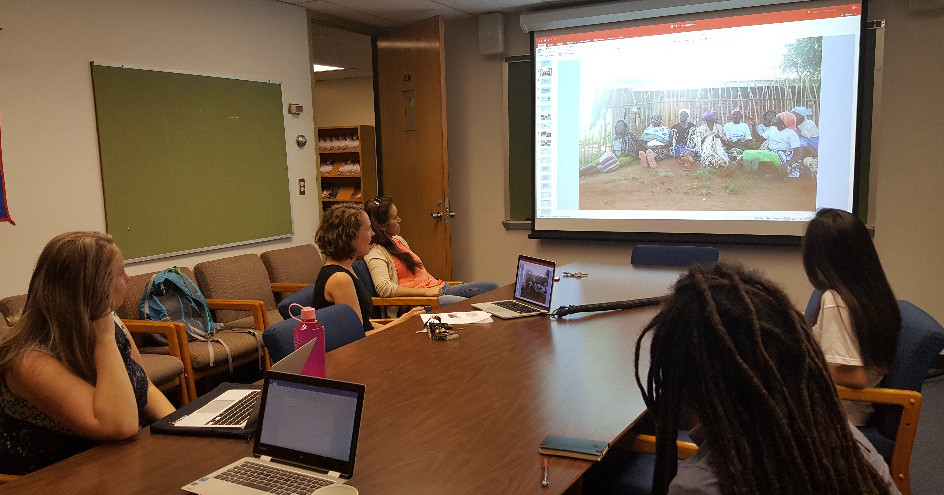 On Monday, March 27th, Chesney McOmber gave a talk to the Social Change & Development Working Group titled, “The Feminization of Rural Space: Exploring the Politics of Male Absence in Kenya and Morocco.” The talk focused on McOmber’s dissertation research comparing 4 communities between both Kenya and Morocco with dominant female populations (largely due to male migration) as compared to those with more equitable female/male population ratios.
On Monday, March 27th, Chesney McOmber gave a talk to the Social Change & Development Working Group titled, “The Feminization of Rural Space: Exploring the Politics of Male Absence in Kenya and Morocco.” The talk focused on McOmber’s dissertation research comparing 4 communities between both Kenya and Morocco with dominant female populations (largely due to male migration) as compared to those with more equitable female/male population ratios.
Focused on analyzing the effects of gender ratios on community and home life, McOmber used political ethnographic methods to conduct her research, including qualitative semi-structured surveys, focus groups, life history interviews, and participant observation, as she resided for about 4 months within each community. Using community-centered understandings of empowerment, Chesney overall found that where male migrations were high, women were more empowered. In particular, high rates of male absence were linked to interdependency on community resources (social, economic, and political), physical mobility between public and private spheres, and greater political awareness and actions. These differences were most stark in Morocco, where gender norms are more overt, as compared to Kenya. Finally, McOmber’s presentation ended with an emphasis on women-centered research which asks the right questions, given the social and cultural context, and which increases our global understanding of the development of social capital as the first step to promoting women’s empowerment and change.
